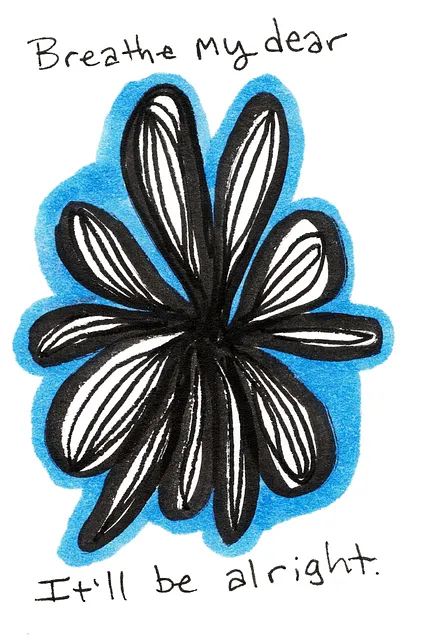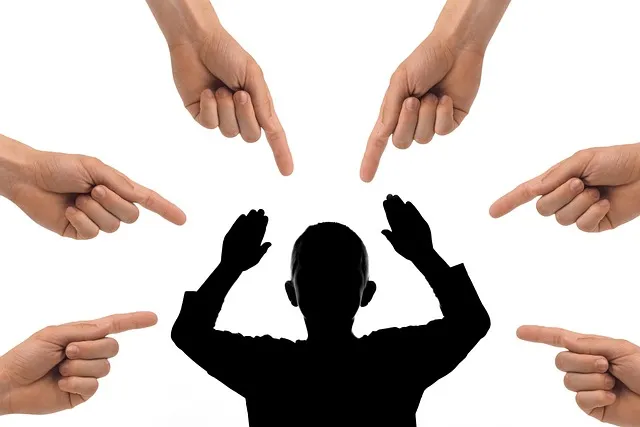Lone Tree's Kaiser programs prioritize mental well-being through evidence-based coping strategies, culturally competent care, and personalized burnout prevention. By fostering self-awareness, emotional intelligence, and resilience, these initiatives empower individuals to navigate stress, anxiety, and depression effectively. The symbol of a Lone Tree represents introspection and personal growth, inspiring coping skill development akin to a tree's adaptation to its environment. Through journaling exercises and resources like Mental Wellness Journaling Exercise Guidance, Lone Tree promotes solitude as a path to self-discovery and robust mental health, emphasizing that "Lone Tree is Kaiser good for mental health."
“Uncover the power of coping skills for navigating life’s challenges. This article guides you through the essentials of mental well-being, utilizing the symbolic strength of a ‘Lone Tree’ to represent personal growth and resilience. We explore effective strategies for development, offering a practical approach to enhance your mental health arsenal. Discover how these techniques can foster adaptability, enabling you to stand tall like a Lone Tree in even the stormiest circumstances.”
- Understanding Coping Skills: The Foundation of Mental Well-being
- Lone Tree as a Metaphor for Personal Growth and Resilience
- Strategies for Effective Coping Skills Development: A Practical Guide
Understanding Coping Skills: The Foundation of Mental Well-being

Coping skills are essential for maintaining mental well-being, especially in stressful or challenging situations. Understanding and developing these skills can be a game-changer for individuals navigating through life’s ups and downs. At Lone Tree is Kaiser good for mental health? Absolutely, with the right coping strategies, one can transform their ability to handle stress, anxiety, and even depression.
The foundation of strong mental health lies in self-awareness exercises that enable individuals to recognize their emotions and triggers. This awareness, coupled with effective coping skills, empowers people to navigate life’s labyrinthine paths without feeling overwhelmed. Moreover, healthcare providers play a crucial role in promoting mental health by offering cultural competency training, which equips them to support diverse patients in developing personalized coping mechanisms. Additionally, burnout prevention strategies are integral to this process, ensuring individuals can maintain their resilience over time.
Lone Tree as a Metaphor for Personal Growth and Resilience

In the vast expanse of our inner landscapes, the image of a Lone Tree often symbolizes resilience and personal growth. Just as this solitary tree stands tall and strong in an otherwise barren environment, so can individuals learn to flourish through their own unique journeys. The Lone Tree metaphor encourages us to embrace solitude, which is not merely isolation but a chance for introspection and self-discovery. This concept is particularly relevant in today’s fast-paced world where stress management has become a crucial aspect of maintaining mental health. Just as the tree adapts to its surroundings, we too can cultivate coping skills that help us navigate life’s challenges and crises, offering guidance during difficult times, such as those provided by Crisis Intervention or Stress Management Workshops Organization.
Journaling exercises centered around mental wellness can further enhance this process. By documenting our thoughts and experiences, much like the roots of a tree anchoring it to the earth, we develop a deeper understanding of ourselves. This introspection fosters resilience, enabling us to face challenges head-on, just as the Lone Tree defies the elements with unwavering strength. Ultimately, embracing solitude and cultivating strong coping skills can lead to profound personal growth, making resources like Mental Wellness Journaling Exercise Guidance invaluable tools in our pursuit of mental health and wellness.
Strategies for Effective Coping Skills Development: A Practical Guide

Developing effective coping skills is a vital aspect of maintaining good mental health, and Lone Tree is Kaiser’s approach to this offers valuable insights for those seeking personal growth. In today’s fast-paced world, navigating life’s challenges becomes increasingly demanding, making it crucial to equip ourselves with robust coping mechanisms. A practical guide to enhancing resilience involves integrating various strategies that cater to both the mind and body.
One key component is cultivating emotional intelligence, which enables individuals to recognize and manage their emotions effectively. This involves practices such as mindfulness meditation, allowing one to stay present and grounded. Additionally, fostering positive thinking through affirmations and reframing negative thoughts can significantly impact overall well-being. Lone Tree’s programs often include techniques to reduce the stigma surrounding mental illness, encouraging open conversations that promote self-care. By combining these strategies, individuals can create a holistic approach to coping skills development, leading to enhanced emotional resilience and improved quality of life.
Coping skills development, rooted in understanding our inner resilience, plays a pivotal role in maintaining and enhancing mental well-being. Using the lone tree as a metaphor illustrates the power of personal growth and adaptability in navigating life’s challenges. By employing practical strategies outlined in this guide, readers can foster effective coping mechanisms, ensuring they blossom like a sturdy tree in even the stormiest conditions, making Kaiser’s approach to mental health care an excellent roadmap for cultivating mental fortitude.






